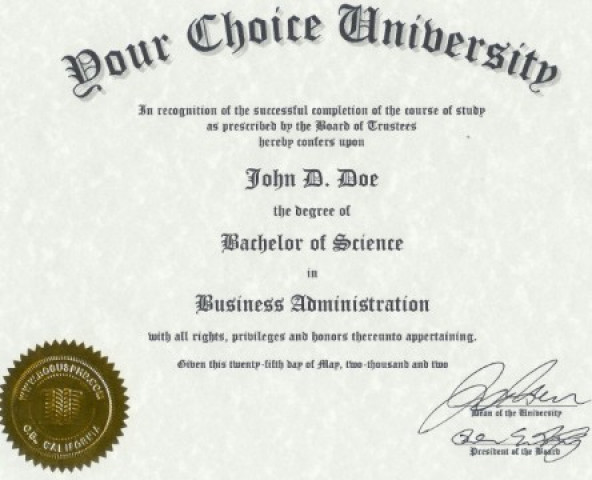“I feel ashamed that I am in a country where a person who has committed terrible crimes is re-elected. It makes you lose hope, because we are working so hard for our degrees, yet there are those who do nothing, acquire fake degrees, and go far in their lives. Its very discouraging and it makes you start looking for shortcuts.”
These profoud words capture the very essence of the detrimental effects of our fractured political structure on our social strata. But these comments did not come from some famous party leader. Nor did they come from some respected scholar, or human rights activist or insightful analyst. These are the words of little Hareem Nasir, who just secured first position in her Matriculation Examinations at the Federal Board. She was asked to appear on a popular current affairs program to comment on Pakistan’s present state of affairs. And her opinion is indicative of the true extent of the crisis our society faces.
Hareem Nasir’s view casts a dark shadow on the true impact of our political quagmire, and specifically the fake degree scandals, on our nation’s fragile psyche. While our politicians scream and shout “political victimisation” ad nauseum, they fail to see how the youth is looking at this entire fiasco. And their young impressionable minds are being adversely affected.
Take for instance, the intensely vociferous reaction of the Punjab Assembly against the media for making such a big fuss over the entire issue of bogus degrees. Journalists were painted as vile, conniving scoundrels, ruining people’s lives for the sake of a quick buck. The Assembly passage of a resolution lambasting 'certain media section' and the profane comments of the resolution’s architect MPA Sanaullah Mastikhel towards journalists highlights the price the media has to pay for supporting the truth. It doesn’t matter that these assembly members betrayed the very people they claim to represent by lying under oath. It doesn’t matter that they used such unscrupulous methods to enter positions of power. And it doesn’t even matter if a degree is genuine or fake, as a certain provincial Chief Minister just confessed. At the end of it all, the whistleblowers are facing all the heat, because they pointed out the corrupt practices of our parliamentarians.
What lesson is the youth learning from this? A good moral for this story would be: “It’s better to put up and shut up than to own up.” Another could be “It’s better to ignore bad things, than to point them out for the betterment of society.”
Another anecdote worthy of Aesop could be President Zardari’s excellent remarks regarding Quaid-e-Azam Mohammad Ali Jinnah. The President said he failed to understand the whole hoopla about fake degrees, noting with relish that the Quaid didn’t have a graduate degree!
Well, that’s true, considering that Quaid-e-Azam studied practiced law at Lincoln’s Inn, one of the best law firms of the world. But he didn’t have a Bachelors degree, so I guess Mr. Zardari is right in saying it. But then again, the Quaid didn’t do a lot of other things. He never made agreements with military dictators. He never faced any accusations of money in Swiss banks. His party was never on a collision course with the judiciary. He never said that promises weren’t like the words of the Quran or Ahadith. He was never sent to jail for 11 years on alleged corruption scandals. He never bequeathed his party to his sister or daughter after his death. He never pardoned any of his ministers who faced criminal investigations. And he never gave a party ticket to anyone involved in bogus degree scandals.
It’s strange that of all the great qualities that the founder of this nation had, the President only picked out the fact that he did not have a graduate degree. So I guess the only moral of this story is “Kids, don’t focus on the Quaid’s honesty, his values, his virtue, his piety, his statesmanship, or his character. He didn’t have an undergraduate degree, so it’s ok if you don’t either.” Fabulous.
But it brings me back to what little Hareem Nasir said. Her discouragement at seeing how hard she had to work to get to where she was, while at the same time seeing people enter parliament through such scandalous behavior is not just teen angst. It is the corrosion of her values, which were instilled in her while she grew up. But when she sees people like Jamshed Dasti lie, cheat, and steal their way to power, how can she be expected to have any faith in the path of righteousness? Such actions made her want to look towards shortcuts, and that is where I see our impending doom. If bright award winning students are going to start thinking about the easy way out, what is to become of our youth? Our upcoming generation is learning some very bad lessons from such shameless behavior, and the true impact of this will not be felt now, but in the next few years, when we see millions of Jamshed Dastis, Azam Chelas, and Samina Khawar Hayats, in every facet of our society, going by the Law of Jungle, where its every man for himself, and rights only belong to the powerful.
So what do our little ones learn from this ethical disaster? We may see youngsters thinking to themselves, “Who CARES about morals and a sound education?! I can go the way of the Dasti! Why would I put myself through years of laborious study in some stupid class, when I can just get a fake degree and live the high life?” Considering the numbers of parliamentarians caught in such scandals, the evidence is hard to ignore.
And it’s unlikely to stop there. We may see fairy tales inspired by the “Crime DOES pay” adage. We may see Jamshed Dasti entering political folklore like a modern King Arthur, facing tremendous moral perils, and successfully defeating them to become a powerful leader of the people, inspiring thousands. We may even see toddlers looking up to him as a role model, as proof of the fact that honesty isn’t the best policy, but misleading takes you far. Considering that Mr. Zardari’s rise to power is seen as a Cinderella story by his party members, I wouldn’t be surprised if our youth felt the same way in the near future. The Grimm Brothers would have been proud of us.
What Jamshed Dasti taught our youth
Politicians have deepened the wedge between morality and politics through their shameless defense of fake degrees. The youth are learning some tertible lessons.



COMMENTS
Comments are moderated and generally will be posted if they are on-topic and not abusive.
For more information, please see our Comments FAQ